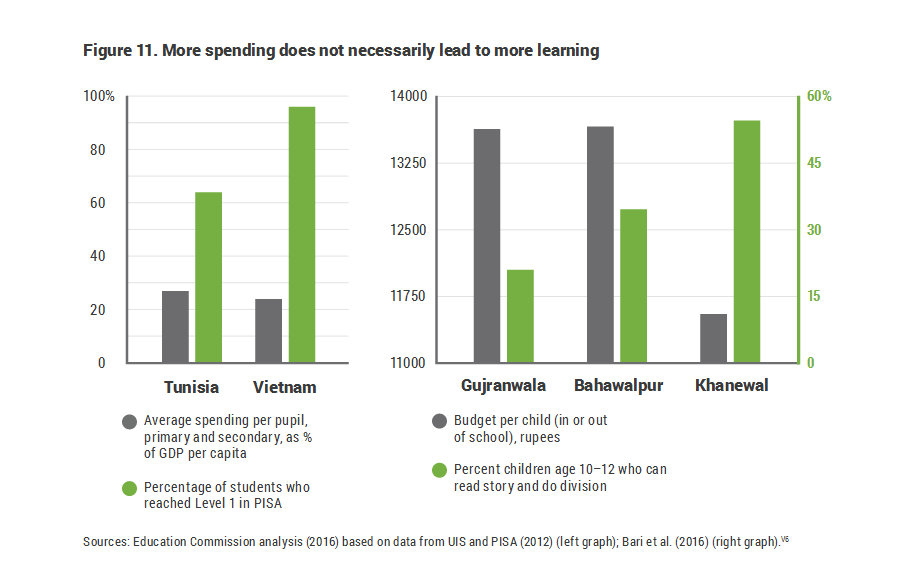Education Finance Commission Report
Share
20/09/2016
New report on education financing calls for increased funding and support for UIS
The International Commission on Financing Global Education Opportunity looks to the UIS for leadership in producing the data needed to keep countries and donors on track towards SDG 4. The report calls for increased funding and support for the Institute as part of a data revolution in education.
Investing in education for a changing world
The International Commission on Financing Global Education Opportunity (The Education Commission) has launched a new report, entitled The Learning Generation: Investing in Education for a Changing World, which outlines a vision for the largest expansion of educational opportunity in modern history and the steps necessary to make the #LearningGeneration a reality. It features a range of UIS data and specifically calls for greater support for the Institute given its mandate to monitor SDG 4–Education 2030.
The Commission also recognises the leadership role of the Institute in developing the standards, methodologies and internationally-comparable data on a wide range of education issues – from learning outcomes to education finance. Without UIS data, countries cannot benchmark their progress while improving their policies and planning. UN partners and donors cannot better target their initiatives and resources for maximum effect. UIS data also empower civil society groups to mobilise public support for increased investment in education and hold governments accountable.
While the UIS has taken the lead in developing the standards, guidelines and tools needed to produce SDG 4 data for SDG 4, there is a tremendous need for more resources to help countries collect and use the information. In response, the Commission report calls for greater funding for the UIS overall and specifically recommends expanding and building on the Global Alliance to Monitor Learning.
To produce indicators for SDG 4, countries will need to use a combination of data from administrative records, household surveys and learning assessments. But much of these data are currently not being collected and funding and technical capacity for statistical activities are insufficient in many countries. In support, the UIS will play a leadership role in a new Global Education Data Initiative, which would “support efforts to strengthen the educational evidence base more broadly in order to improve policy and investment”. This builds on the UIS strategy to lead a data revolution in education in order to achieve SDG 4–Education 2030.
As the official source for international education data, the UIS also contributed to the report by providing the latest information on children and youth out of school, youth and adult literacy, average government spending per pupil to projections on the number of teachers needed by 2030.
For example, the report used UIS data to show that more spending per student does not necessarily lead to more learning. Teachers’ salaries can account for up to 90% of recurrent education expenditure in some countries, but this does not amount to more instructional time. In fact, a UIS study in seven African countries found that primary school pupils received less than one-half of the intended instructional time due to teachers being expected to perform non-teaching tasks (such as fundraising or administration).
